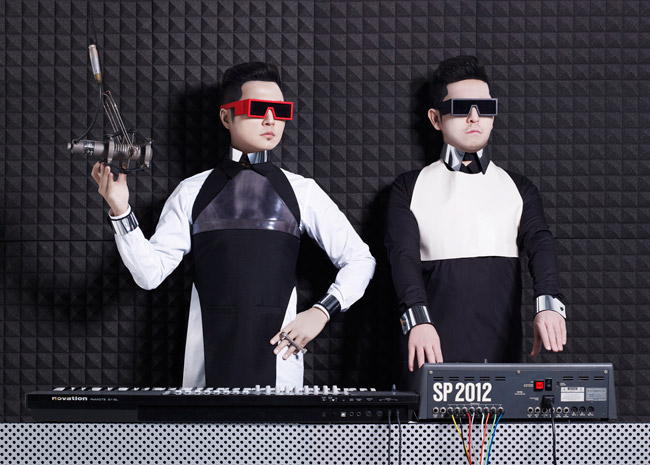 A pioneer and visionary in both fashion and music, VERBAL has inspired a generation of Japanese youth since his musical debut in 1999. Thirteen years down the line and with a handful of successful musical projects and his own label under his belt, he remains one of the most respected and hard-working musicians in Asia.
A pioneer and visionary in both fashion and music, VERBAL has inspired a generation of Japanese youth since his musical debut in 1999. Thirteen years down the line and with a handful of successful musical projects and his own label under his belt, he remains one of the most respected and hard-working musicians in Asia.
For readers who are unfamiliar with your work, please tell us a bit about yourself, your music and your various projects.
I started out as a member of the group m-flo. In the beginning, we were known as a hip-hop/R&B trio, but after our vocalist left to pursue her solo career, Taku Takahashi and I evolved into a producer duo, featuring different artists on every song. I also joined Nigo (A Bathing Ape founder) as a member of his Japanese hip-hop group Teriyaki Boyz, working with producers like Daft Punk, Pharrell Williams, Kanye West and Ad Rock. In addition, I launched the artist agency/label Kozm Agency in 2009, which manages the popular female electro DJ Mademoiselle Yulia and a number of young producers. Besides music, I have a great passion for jewelry, and that led me to create my own brands called Antonio Murphy & Astro and AMBUSH.
You spent part of your youth in the States. Did this help to shape your musical tastes and lead you into the hip-hop world?
Yeah, it definitely did. I first encountered hip-hop culture when I visited the States in fifth grade. I saw kids my age break-dancing and rapping, and the whole attitude behind the culture made me fall in love with it immediately. I was introduced to Run-DMC, and so the first cassette I got was Raising Hell. The year after that, I also got into skateboarding. The hip-hop and skateboard culture really influenced my “cool radar.” I would buy a Raiders cap because I saw Eazy-E wearing one, or I would get Vision Street Wear because I would see someone like Mark Gonzales wearing it in magazines. That kind of stuff pretty much molded my being. Now, a few years down the line, as I’m doing music and jewelry as a profession, both hip hop and skating are big parts of my life.
Of the various musical projects you’re involved in, which is the greatest
creative outlet for you?
They are all so different, so I can’t really say. They all allow me to express myself in different ways. With m-flo, Taku and I come up with ideas regarding how we want our album to sound, how we want the stage to look, and so on. We both DJ, so we always keep the dance floor in mind when we produce songs. For Teriyaki Boyz, we four MCs rub off each other in the studio to come up with our verses, and it’s a totally different production style. I struggle the most in terms of my solo work. I’m not really a solo artist… I prefer working in groups. But all the music projects challenge me and help me become a better artist.
Throughout your career you’ve worked with a number of American and foreign artists. Which of those collaborations stand out the most for you?
To me, they are all geniuses, and they inspire me in very different ways. Watching how they handle multiple projects at once, listening firsthand to the accounts of their crazy lives… these interactions are very motivating for me, and they go beyond the songs we made together. I first met Kanye through Teriyaki Boyz, when he first visited Japan for a Fendi party that Nigo was producing at the time. He was curious about my chain, which was from my brand Antonio Murphy & Astro, and asked me to make him one. After that we went back and forth a lot about fashion, and I even rolled with him at fashion shows. He was always avid about fashion and held a particular interest in Antonio Murphy & Astro and AM BUSH, so it’s always been an important point of conversation for us.
What is your take on the current Japanese music scene?
K-pop is definitely huge here, as it is in other countries now. J-pop is evolving, but many of the successful acts are enjoying their fruits through pure strategy as opposed to the power of music itself… no disrespect. Since the domestic market has been self-sufficient for many years, I think that many labels and artists are having a hard time trying to adapt to new ways to counter the slump in music sales. Also, on the club music side of things, the Japanese police force has been very adamant about shutting down clubs all around the country, and that has been taking its toll on artists and DJs whose main source of income comes from their gigs at such venues. But I think this will be the dawn of something new, as people are forced to awaken to a new reality.
Text by Mike Burns
Photography by P.M. Ken
Photo Courtesy of ART IMAGE INC.

